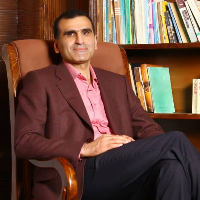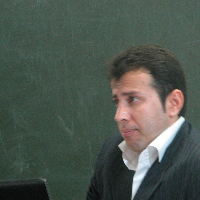Organizing the Endowment System and its Educational Goals in the First Pahlavi Era
The issue of endowment (waqf) is one of the most important issues in the history of Islamic Iran. This importance stems from its impact on various religious, political, social, and economic aspects. Therefore, in the history of Iran, governments have always tried to interfere in the affairs of endowments. The first Pahlavi government also followed the same method. This government made fundamental changes in endowment affairs, as in other areas including political, economic, social, and cultural structures of Iran in the Qajar era. The present study aims to answer the question of: How was the endowment affairs organized in the first Pahlavi era and what were its educational goals? The historical method and archival documents, publications, and other historical sources were used in this study.The findings show that the Pahlavi government during a ten-year process, through the approval of new laws, was succeeded in organizing endowments and making changes in that area with the aim of quantitatively and qualitatively developing the country’s educational system. This goal was achieved by using endowments and spending the proceeds of endowments in the fields of construction (construction of educational buildings), education (promotion of education and provision of educational resources), and publishing books.
The issue of endowment in the history of Iran has been considered since ancient times. With the rise of Islam and its widespread emphasis on endowment and benevolence, its functions and uses increased. The importance and credibility of the endowment institution in Iran are such that some people believe that the correct recognition of the Iranian court is not possible without accurate recognition of the endowment institution. In the Qajar era, with the increase of political and religious influence of the clergy, the power of the clergy in managing the spiritual and financial affairs of the endowments was restored and despite the efforts in the Naseri and constitutional era, the power and influence of the Ulama over endowment affairs remained until the end of this period. So, the first Pahlavi government inherited the structure of the Qajar government in endowment affairs. This structure of the endowment system was not favorable in the first Pahlavi government for various reasons. That's why the Pahlavi government, after consolidating the foundations of its power, sought to organize endowment affairs for its goals. Explaining the evolution of the endowment system and analyzing the educational goals of Reza Shah are the most important concerns of this study.
Materials and Methods
This study aims to answer the question of: How was the endowment affairs organized in the first Pahlavi era and what were its educational goals? To gather the data, the historical method and archival documents, publications, and other historical sources were used in this study.
Discussion of Results and Conclusions
One of the goals of the first Pahlavi government was to achieve political centralization. Creating a bureaucracy and training an efficient bureaucrat was one of the necessary institutions and tools for creating political centralization. According to this principle, bureaucracy and its development as the tools to create political concentration were considered by the first Pahlavi government. The realization of this issue depended on the development of the country's educational system. The development of the educational system also required the provision of financial resources. It was not possible to finance these expenses only through the annual budget of the Ministry of Education. For this reason, the Pahlavi government had to seek other financial resources to cover the expenses of the country's educational system. One of these sources was the income from endowments. Accordingly, the Pahlavi government tried to organize the endowment system of the country and finally succeeded in approving the endowment law in 1313 AH. In this way, it would provide the necessary financial resources to achieve its goals. However, before approving this law, the Pahlavi government tried to use the revenues of endowments in the development of the country's educational system. This process intensified after approving the Endowment Law. After that, the Pahlavi government organized the endowments in a purposeful manner and sought to use the endowments and their revenues in the field of educational development. Endowment and its revenues were used in three parts including construction, educational expenses, and publishing books. In the construction expenditures part, the Pahlavi government acted in two fields of building schools in endowment fields and constructing schools from endowment revenues. In the field of educational expenditures, endowments and incomes were used in some ways including the provision of teachers' salaries, the provision of tuition, accommodation expenses for students, and the establishment of a preaching institute. In addition, the Pahlavi government published some books and established libraries from endowments revenues. Thus, the first Pahlavi government succeeded in organizing the country's endowment system to take steps towards achieving its goals by using endowment and its revenues in the development of the country's educational system. The most important of these goals was to train the necessary force to create an efficient bureaucratic system in order to create a political concentration in the country.
- حق عضویت دریافتی صرف حمایت از نشریات عضو و نگهداری، تکمیل و توسعه مگیران میشود.
- پرداخت حق اشتراک و دانلود مقالات اجازه بازنشر آن در سایر رسانههای چاپی و دیجیتال را به کاربر نمیدهد.




